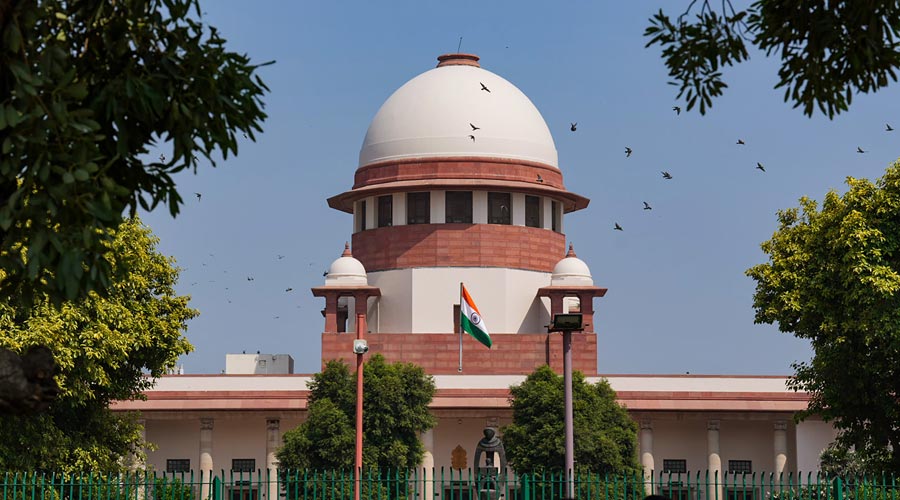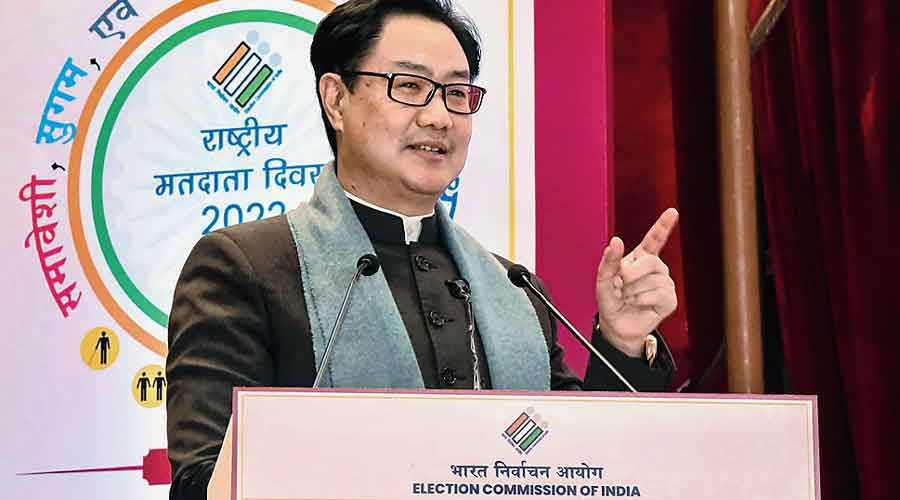The Supreme Court on Tuesday declined to direct the Union government and the states to double the strength of judges, pointing out that the collegium finds it difficult even to fill the existing vacancies and expand infrastructure.
“These are all populist measures which you are suggesting. It is difficult even to fill the 160 seats in Allahabad High Court and you are asking for increasing the strength to 320!” Chief Justice of India D.Y. Chandrachud told PIL petitioner and advocate Ashwini Upadhyay.
“Have you ever been to Bombay High Court? Not even a single judge can be added there because there is no infrastructure. Ask the chief justice of the high court as to how many young lawyers are interested in becoming judges,” Justice Chandrachud added.
The bench, which included Justice P.S. Narasimha, at one stage threatened to impose costs (a fine) on Upadhyay for filing such petitions as they divert the court from important matters.
The CJI recalled that when he was the chief justice of Allahabad High Court, the then law minister, Ravi Shankar Prasad, had asked him to increase the strength of the high court by 25 per cent.
“I was like ‘Good Lord, I cannot even fill the 160 existing sanctioned strength!’” Justice Chandrachud recalled.
The remarks from the top court come in the context of the recent fissures between the Centre and the judiciary over the intransigence of the government in clearing the names of several judges.
In many cases, the government chose not to clear the names despite the collegium iterating the recommendations, which then become binding.
Allahabad High Court, the biggest in the country, now has 60 vacancies against the sanctioned strength of 160 judges. Bombay High Court, the second largest, has 28 vacancies. Justice Chandrachud’s parent high court is Bombay High Court, and he was elevated to the Supreme Court after serving as the chief justice of Allahabad High Court.
In all, there are 335 vacancies inthe 25 high courts in the country, which have a total sanctioned strength of 1,108 judges.Calcutta High Court has 18 vacancies, against the sanctionedstrength of 72 judges.
The Supreme Court bench was not convinced with the plea of Upadhyay — who so far has filed more than 50 public interest litigation petitions on various issues — that the strength of the judiciary needs to be increased as over 15 crore people are waiting for justice across the country, and 5 crore cases are awaiting adjudication.
The advocate pleaded that the right to speedy justice is guaranteed under Article 21 of the Constitution.
Justice Chandrachud said: “Every evil you see does not merit a PIL. Increasing judges is not the panacea… try getting judges to fill up the existing vacancies, then you will realise how difficult it is….We cannot entertain petitions which are general in nature like this.”
Justice Chandrachud said: “Every evil you see does not merit a PIL. Increasing judges is not the panacea… try getting judges to fill up the existing vacancies, then you will realise how difficult it is….We cannot entertain petitions which are general in nature like this.”
“Merely adding more judges is not the answer. You need good judges…. This is like Parliament passing an act and saying that all matters in courts would be disposed of in six months,” the CJI observed.
The bench then warned Upadhyay that it would dismiss the petition and make him pay “infrastructural costs” for filing such petitions.
Upadhyay then sought permission to withdraw the PIL with liberty to file a better petition based on adequate research and data in support of his contention.











